After COVID, the world may once again be flat and hyperconnected. Alternatively, coronavirus may be a turning point in the era of globalisation.
Read more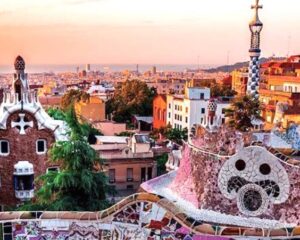

After COVID, the world may once again be flat and hyperconnected. Alternatively, coronavirus may be a turning point in the era of globalisation.
Read more
Author Lauren Schwartz | Friedrich Ebert Stiftung | Published 21 April 2020 Lauren Schwartz considers what US foreign policy might look like under a Democrat president – after Trump, and after coronavirus. The paper canvasses “30 years of ambivalent foreign policy” – from 1989 through to 2020, and a Trump administration prepared to signal its willingness and ability to adopt a more competitive approach towards its rivals, militarily, economically and diplomatically. A new American foreign
Read more
The recent report ‘Eyes Wide Open: Managing the Australia-China Antarctic Relationship’ contains a lot of information about China’s activities in Antarctica and usefully sets out aspects of the Chinese-Australian relationship.
But are the report’s recommendations a disproportionate reaction to a manufactured crisis regarding China’s presence and activities in Antarctica?
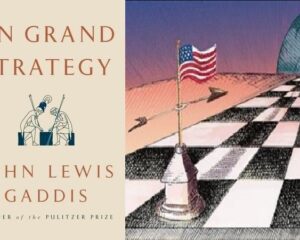
Grand strategies are the territory of great powers, while other states see their strategic independence incorporated into another state’s grand strategy. The comfort that Australia embraced while enclosed in an American grand strategy can’t last, and hard choices lie ahead. In the shifting power balance, Australia will need to recover its autonomy.
Read more
Governments point to scientific advice. Who gets included in powerful expert groups, who gets sidelined and why? Why is epidemiology dominant? What values are implicit in behavioural science techniques like ‘nudging’?
Read more
According to a report released in January 2020 by the Bennett Institute (Cambridge), many large democracies are now at their highest-ever recorded level for democratic dissatisfaction, including the UK, US, Brazil, Mexico and Australia. Many large democracies are now at their highest-ever recorded level for democratic dissatisfaction, including the UK, US, Brazil, Mexico and Australia A report released in January 2020 by the new Centre for the Future of Democracy at the Bennett Institute, University
Read more
The report from Australia’s Commission for the Human Future sets out clearly and with insight the major and inter-dependent challenges that will persist beyond the pandemic – including global warming, food insecurity, biodiversity loss, environmental degradation, resource scarcity and wealth inequality. Action is vital, but how to respond seems as elusive as ever.
Read more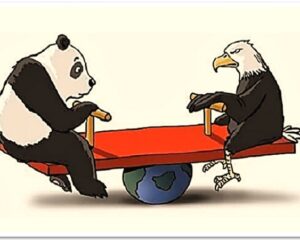
An insightful paper that seeks a strategy for Europe ‘to escape the bipolar logic that demands it choose between the American and Chinese economic/technological spheres’. The recommendations for Europe should resonate equally in Australia – a country already caught up in the global competition for influence, and likely to be subject to ‘increased pressure from Washington on its allies to take a clear position on the sharpening US-China conflict and clearly side with the United States’.
Read more
Former Australian politician, Dr John Hewson, now chair of Australia’s Commission for the Human Future and a professorial fellow at the Crawford School of Public Policy at the Australian National University, warns that ‘the coronavirus pandemic should be seen as a dress rehearsal for what awaits us if we continue to ignore the laws of science, the physical world and the demands of several catastrophic threats such as climate change’.
Read more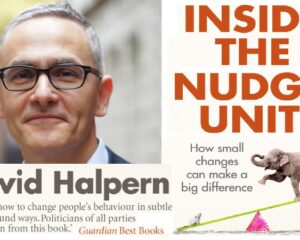
How appropriate is behavioural economics as a basis for making public policy? Should it be called ‘science’? What does the evidence tell us?
Read more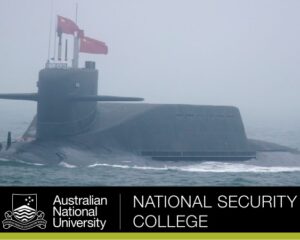
This publication brings together insights of leading international scholars and next-generation expertsto produce a comprehensive and authoritative reference examining the interplay of strategic issues, including nuclear strategy and deterrence; maritime operational issues, including ASW; and technology issues, including new and disruptive technologies and potential game-changers in relation to deterrence.
Read more
While China – and the potential for conflict in Northeast Asia – is prominent in discussion amongst Australian strategists, often overlooked is the fact that Northeast Asia has emerged as a critical theater of Russian foreign policy in recent years.
Read more
This collection of essays explores, from the perspectives of eight experts, four areas of deterrence theory and policymaking: the underlying assumptions that shape deterrence practice; the enduring value of extended deterrence; the impact of emerging technologies; and the ‘blurring’ of the lines between conventional and nuclear weapons.
Read more
By Mike Scrafton | For the moment, reducing reliance on overseas supply chains appears to be a big lesson out of the COVID-19 pandemic. But reluctance to regulate corporate and commercial activity has been a hallmark of governments across the world. Are neoliberal governments capable of reversing the direction they have been taking for three or four decades?
Read more
Yuval Noah Harari thoughtfully examines the issues around the rush to put in place technological surveillance-based responses to COVID-19 pandemic management, and governments’ pivot to nationalistic solutions to problems which are essentially global in nature.
Read more
ASPI’s Peter Jennings and Michael Shoebridge have recently foreshadowed a potential military crisis in North Asia, possibly as soon as late 2020 or early 2021. Amongst other extraordinary measures, Shoebridge calls for the ANZUS Treaty to be invoked. Jennings calls for the Australian Defence Force to be placed on the highest levels of readiness and for defence expenditure to be boosted to around 3.2% of GDP. Are their conclusions supported by the evidence they proffer?
Read more
New security issues presented by global warming, and now, pandemics, constitute existential threats. They go to the heart of national security, showing that the scope of national security policy needs to transcend traditional defence and law enforcement models by comprehending climate change, human security against pandemics, environmental degradation, food security, water shortages and refugee flows – to identify just a few issues.
Read more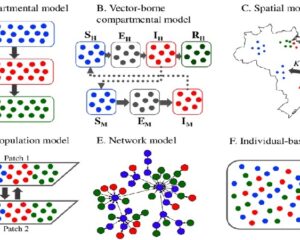
David McCoy makes some important observations on the relationship between the scientific and non-scientific elements of COVID-19 decision-making; the inherent limitations of modelling – particularly when dealing with a novel virus about little is known.
Read more
In government responses to the COVID-19 pandemic, Evgeny Morozov sees a ‘feast of solutionism’ being unleashed. [W]e can see two distinct strands of solutionism in government responses to the pandemic. “Progressive solutionists” propose that timely, app-based exposure to the right information could “nudge” people to behave in the public interest, while “punitive solutionists”, by contrast, want to use surveillance infrastructure to monitor and manage daily activities. The risk, he argues, is that the pandemic will supercharge the solutionist state, … creating an excuse to fill the political vacuum with anti-democratic practices.
Read more
Australia’s strategic quandary emerges from its status as an ally to a great power. If it abrogates its responsibility to set national policy aims by joining in a coalition in which one great power antagonist determines the goals of the war it cannot claim to have a strategy. It cannot claim to be linking Australia’s national priorities to the military actions. Its fate would be in the hands of its great power ally.
Read more